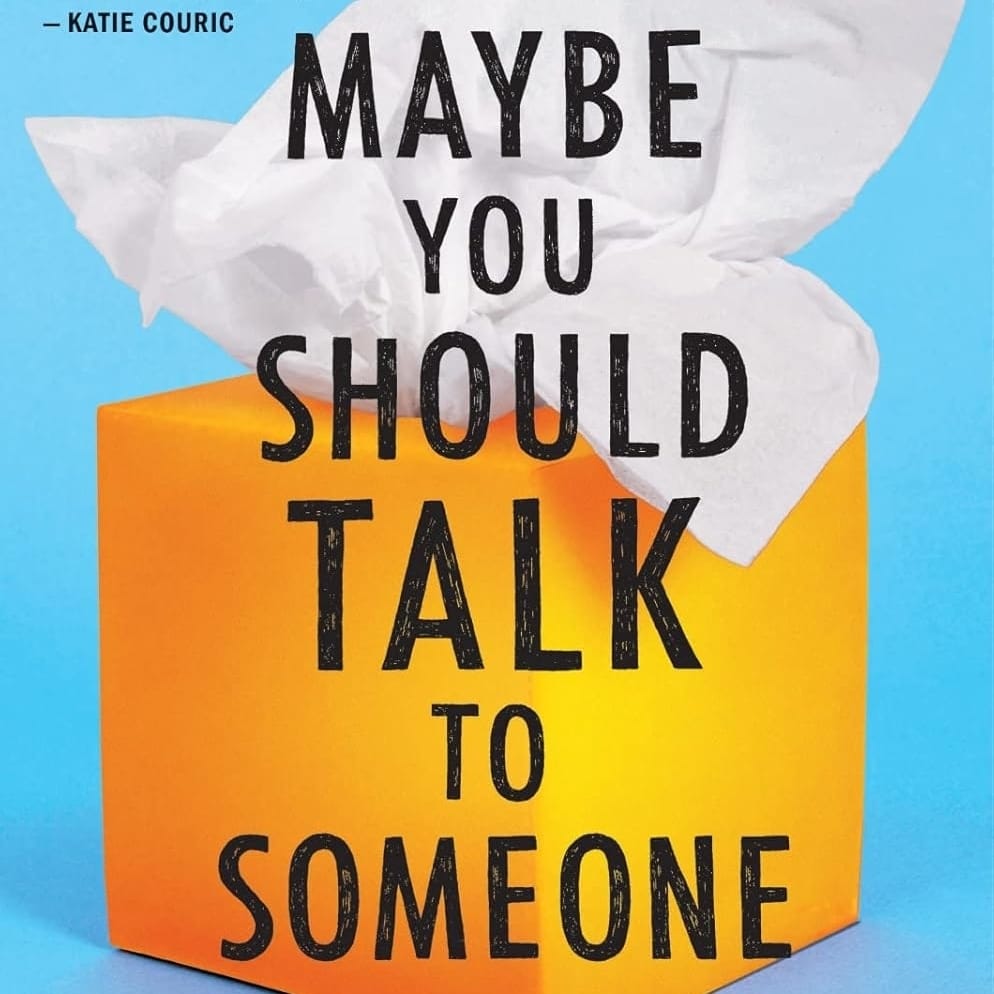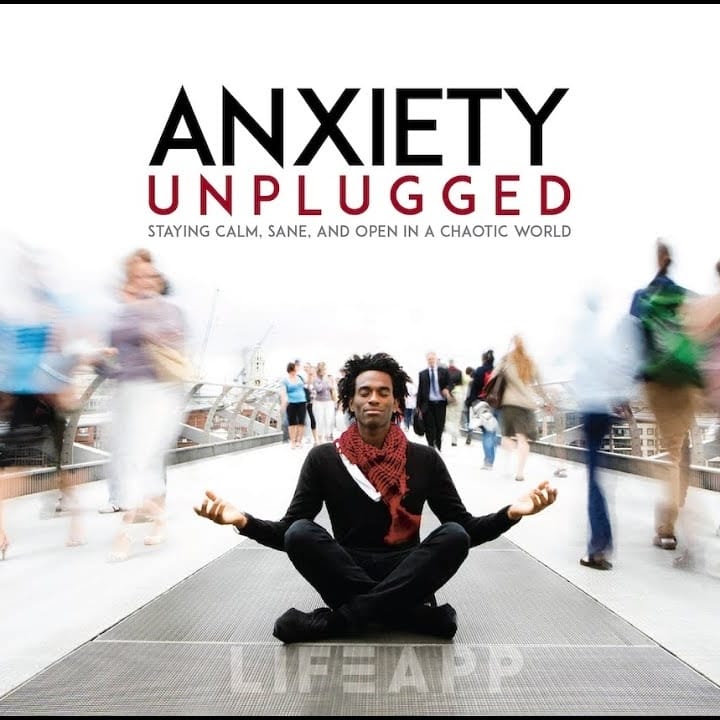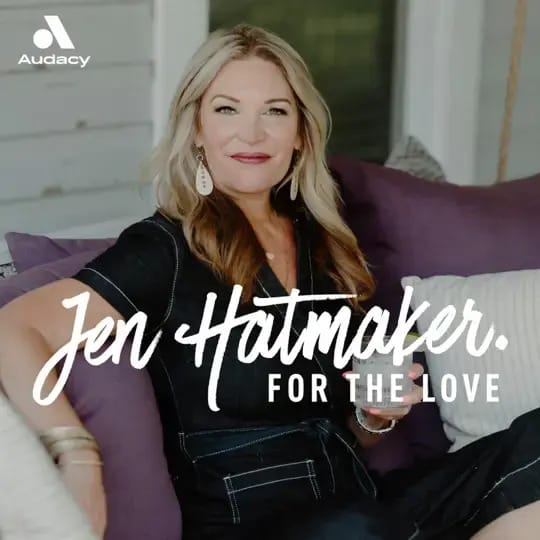It Started on the Side of the Road
It hit me out of nowhere. I was driving, and suddenly I couldn't keep going. Tears blurred my vision. My chest was tight. My body felt like it had just survived a head-on collision—but nothing had happened.
Except something was happening. I just couldn't name it yet.
This wasn't a one-off moment. From December 2021 through the fall of 2022, I carried a low-grade panic in my body like background noise—a fight-or-flight hum running 70% of the day. I was functioning. But I wasn't okay.
After some honest conversations with my wife, I reached out to a close friend and mentor. We spent hours walking, driving, talking. She helped me explore what might be going on beneath the surface. She offered breathwork, silence, and small practices. And they helped. Some.
But I still remember the day she paused mid-sentence, looked at me, and said with quiet conviction, “I think you'd really benefit from talking to a therapist.”
Not because I was messed up. Not because I couldn't handle life. But because I was stuck. And because sometimes the most loving, grounded thing we can do for ourselves and the people around us is to get help.
That moment changed me. Therapy didn't fix everything. But it gave me tools. Language. A deeper understanding of my patterns.
It also reminded me: healing is part of learning to live love well—toward ourselves, and by extension, toward others.
And I know I'm not the only one. Most of us, at some point, find ourselves running on empty—trying to power through what we haven't fully named. It's more common than we think, even if it's rarely spoken out loud.
Therapy Isn’t for “Them.” It’s for All of Us
Lori Gottlieb—therapist, author, and someone who's sat on both sides of the couch—puts it this way:
“Every single one of us struggles. Every single one of us needs to work through things. You can't get through life without struggling in some way.”
Still, most of us wait. According to Gottlieb, the average person delays therapy for 11 years after first considering it. Eleven.
“If you were having chest pain,” she says, “would you wait 11 years to see a cardiologist? No. But somehow we treat emotional pain as optional—or shameful.”
So we carry invisible fractures—grief, burnout, betrayal, trauma—quietly convincing ourselves it's not that bad, especially when life looks fine on the outside.
But mental health is health.
And healing isn't indulgent—it's essential. A birthright. And a responsibility.
What Really Happens in Therapy?
Forget the movie clichés. Therapy isn't a sterile clinic with a silent notetaker—or a dramatic vent session where someone nods solemnly while you sob on a couch.
It's far more human than that.
As Lori Gottlieb puts it, therapists aren't “above the fray.” They're people too—people who've often done their own work, sat in that same chair, and know what it's like to feel stuck, ashamed, confused, or overwhelmed.
“We're just like you,” she says. “Therapy isn't about fixing someone. It's about helping you see more clearly—with honesty, gentleness, and compassion.”
It's not the kind of sympathy that simply affirms your pain without challenging your patterns. And not judgment disguised as advice. But the kind of care that says:
“Yes, that hurt. Now let's take a closer look—not just at what happened, but at how you responded and what you might want to do differently next time.”
It's not about blaming yourself. It's about reclaiming your agency. Because real change doesn't come from rehashing the same pain over and over—it comes from learning how to stop the cycle. One insight, one pattern, one brave step at a time.
Therapy Is Practice for Real Life
In her podcast Dear Therapists, Gottlieb describes therapy as a rehearsal room—a space to practice hard conversations, honest reflection, and the kind of vulnerability most of us avoid.
3 Things You Can Do This Week to Start:
1. Name What Hurts
We can't change or heal what we're unwilling to acknowledge. Take 10 minutes this week and write down what you're struggling with. No structure, no grammar rules. Just honesty. Ask:
Where do I feel stuck?
What's been too heavy for too long?
What do I wish I could say out loud?
Even if you never show anyone, this is how healing begins: telling the truth.
2. Ask Around and Explore
Finding a good therapist is part research, part intuition. Start here:
Ask trusted friends, mentors, or your doctor.
Check your workplace or school benefits.
Search by specialty (e.g., trauma, grief, couples therapy).
Look into community centers or nonprofits with sliding-scale options.
Faith-based communities may also offer trusted referrals.
Start a list. Reach out. You're not committing—you're just getting information.
3. Treat the First Session Like a First Date
You're not signing a contract. You're checking for chemistry. The first session isn't a commitment. It's just a conversation to see if there's mutual connection and trust. Afterward, ask yourself:
Did I feel safe?
Did I feel seen?
Did I respect their presence and insight?
Did they ask something that helped me see things differently?
As Lori Gottlieb says, “You want someone who helps you see yourself more clearly—but in a way that's honest, kind, and wise.” If the answer is yes, go again. If it's not a fit, that's okay. Keep looking. You're not auditioning—you're choosing a guide who can walk with you toward clarity and change.
The Way Out Might Already Be Open
In Maybe You Should Talk to Someone, Lori Gottlieb shares a moment when her therapist says, “You remind me of a cartoon. A prisoner shaking the bars of his cell, desperate to get out. But on either side—it's open.”
It's almost funny, if it weren't so true. So many of us feel stuck, worn down, overwhelmed by things we can't quite name. We push harder, try to hold it all together, and assume that struggle is just the cost of doing life.
But what if the stuck-ness isn't a life sentence?
What if the ache is trying to get your attention—not to shame you, but to guide you?
That's the hidden grace of therapy. It's not about fixing what's broken—it's about seeing clearly. It's a space to tell the truth, soften your grip, and remember: pain is not proof that you're failing. It's proof that you're still alive. Still paying attention. Still human.
And sometimes, the most courageous thing you can do isn't to power through—it's to pause. To ask for help. To say, I want more than survival—I want to feel whole again.
That's not weakness.
That's wisdom.
That's love, turning inward—and making space for something new.
Until next week,
Jonathan Penner | Founder & Exec Dir. of LifeApp


Resources To Dig Deeper

Book
Maybe You Should Talk To Someone
A candid, funny, and deeply human look into what really happens in therapy—told from both sides of the couch. As a therapist navigating her own unexpected crisis, Gottlieb brings us into the lives of her patients—and her own—with insight, warmth, and humor, revealing how facing ourselves honestly is the first step toward real change.
-Lori Gottlieb

Video
Anxiety Unplugged
This LifeApp Live clip opens with a powerful scene from Ted Lasso—a raw depiction of an anxiety attack that mirrors Jonathan Penner’s own experience. What began as unexplained panic and overwhelm eventually led him to therapy—not out of defeat, but as an act of strength. This is a story about what happens when love looks like reaching for help. (Play from 20:58 to 48:03)
-Jonathan Penner

Song
Therapy
“Therapy” is an anthem of self-intervention—a bold, soulful reminder that we don’t have to stay stuck in bitterness, isolation, or inner chaos. With raw honesty, she names the toll that unhealed pain takes on ourselves and the people we love—and asks the central question this newsletter is all about: Why keep suffering alone, when help is within reach? Therapy, in her voice, becomes not a last resort, but a declaration of self-respect, relational repair, and love in motion.
-Mary J. Blige

Song
Demystifying Therapy
In this honest and hopeful episode of For the Love, bestselling author and psychotherapist Lori Gottlieb joins Jen Hatmaker to break down the myths around therapy, explore why mental health is just as vital as physical health, and share how therapy helps us grow—not by fixing us, but by helping us see ourselves with clarity, compassion, and courage.
-Jen Hatmaker Podcast
Learn More About


